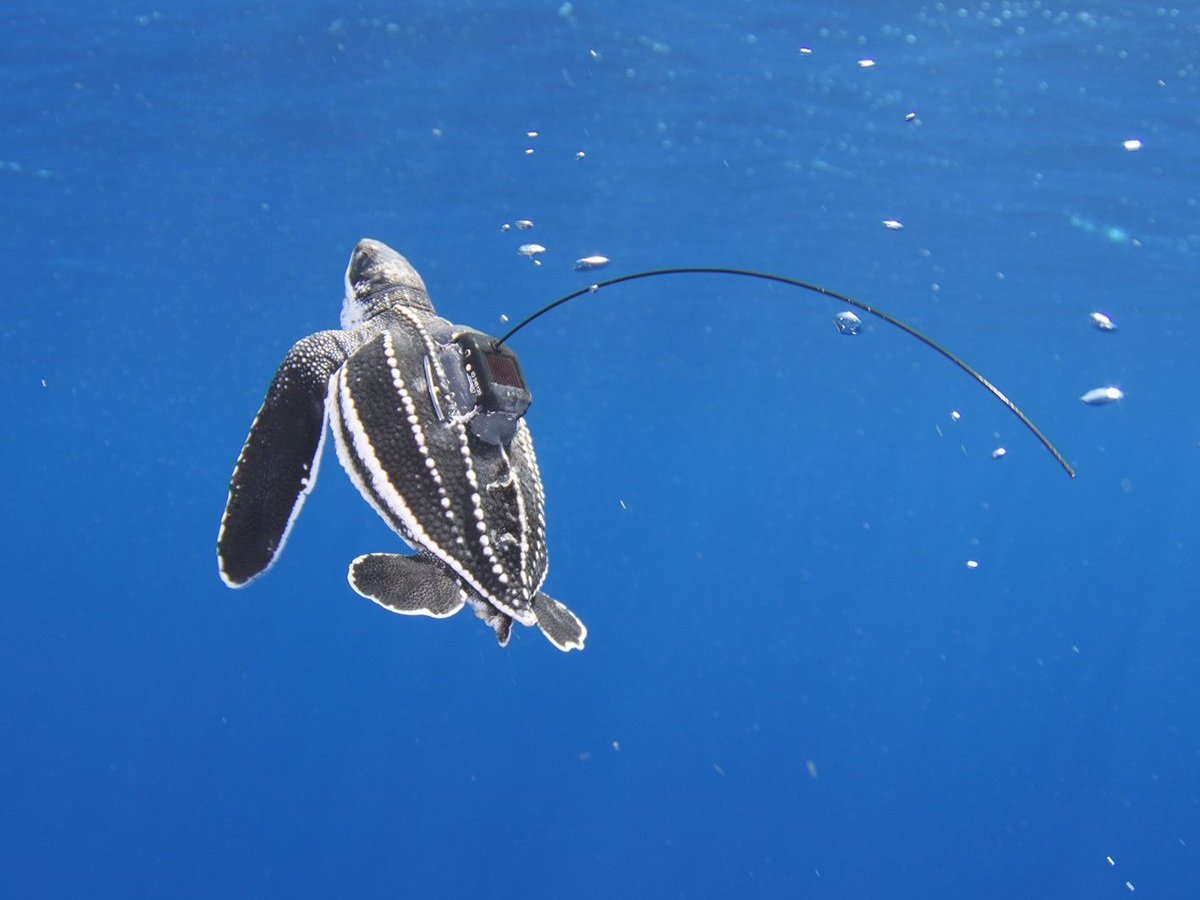With partner organizations, Upwell’s Wildlife Veterinarian Dr. Heather Harris recently led a necropsy session at the Marine Mammal Center to learn more about the underlying health issue of cold stunned sea turtles stranded on the Pacific Coast.
Bon Voyage, Bumpy!
In October of 2021, Upwell and our partners from the National Oceanic and Atmospheric Administration (NOAA) tagged one of the largest leatherbacks ever encountered in the California Current foraging zone weighing in at 1,419 pounds! This massive male leatherback was dubbed “Bumpy” because of the distinctive bumps on the rear of his carapace, which were likely caused by a prior ship strike. Find out more about where Bumpy has traveled.
Welcoming back California's leatherbacks
Learn about the female turtle tagged by NOAA and Upwell in 2020 whose transmitter is still reporting. She was tagged in September 2019, and she returned to same area where she was tagged in the Gulf of the Farallones this year on 31 July 2020. It’s exciting when we see one of these movement records close the loop! Additional leatherback sightings in the Monterey Bay have been reported recently.
Studying Turtles at Sea Offers Deeper Insights
Data collected at nesting beaches give us only a brief glimpse into sea turtles’ intricate life histories. Satellite tags are one of the best tools available to collect data on sea turtle movements and behaviors in marine habitats. But where tags are deployed matters. Deploying tags at nesting beaches means we are limiting our research scope to the females within a population that are nesting in a given year.
Discovering the Origins of Leatherbacks in the California Current
At the turn of the millennium, the origin of leatherback turtles in California waters was unproven. Many assumed they originated from nesting beaches in Mexico or Costa Rica; few could have imagined the extent of their travels across the entire Pacific Ocean. We know now that West Pacific leatherbacks only make their epic trans-Pacific migration about every three to five years. Unfortunately, the batteries on early satellite tags didn’t last long enough to track their whole migration.
Upwell Featured in Carmel Magazine
Leatherback Sea Turtles and Ecosystem Health in the California Current
Leatherbacks from above
The leatherbacks have returned to the central California coast! In partnership with NOAA, Upwell is conducting aerial surveys to locate critically endangered leatherback turtles in California's waters. Learn more about graduate student, Sharon Hsu's first-hand experience as an Upwell Observer aboard these flights.













